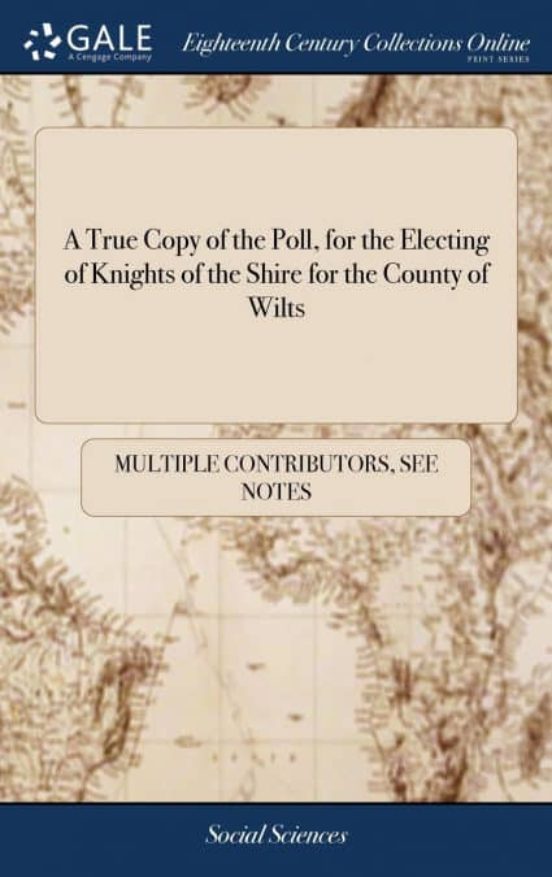a true copy of the poll, for the electing of knights of the shire for the county of wilts

The 18th century was a wealth of knowledge, exploration and rapidly growing technology and expanding record-keeping made possible by advances in the printing press. In its determination to preserve the century of revolution, Gale initiated a revolution of its own
- ISBN: 9781385882467
- Encuadernación: Sin formato definido
This thesis explores the provincial life of George W. F. Howard (1802-64), 7th Earl of Carlisle, better known as the early-Victorian Whig aristocrat and politician Lord Morpeth. It challenges accounts which have presented Whiggery as metropolitan in ethos, by demonstrating that Morpeth strongly engaged with the county of Yorkshire as a politician, philanthropist and landlord. It provides the first dedicated account of how Whiggery operated, and was perceived, in a provincial setting. An introduction summarises the current historiography on the Whigs, and establishes the rationale behind the study. Chapter One details the pivotal influence of Morpeth’s Christian faith on his thought. It suggests that his religious values shaped both his nonpolitical and political actions, ensuring a correlation between them. Chapters Two and Four are concerned with Morpeth’s career as M.P. for Yorkshire (1830-32) and the West Riding (1832-41, 1846-48). They suggest that Morpeth played a key role in building an alliance between the region’s liberals and Whiggery, based around the idea that the Whigs would offer political, economic and ecclesiastical reforms. However, they show how this alliance gradually splintered, partly owing to differences between the Whigs and some of the region’s nonconformist liberals over issues of Church and State and the Whigs’ social reform policies. Chapter Three details Morpeth’s activities as a philanthropist in the county. It suggests that this maintained his links to his supporters, shaped his views on social questions, and enhanced his political reputation. Chapter Five explores his relationship with Castle Howard, his Yorkshire estate. It demonstrates his attachment to the house and integration into local society, his involvement in promoting agricultural and infrastructural improvement in the district, and his concern to improve the moral, physical and spiritual welfare of his tenants. Both chapters show the links between Morpeth’s provincial life and his career as a statesman.


